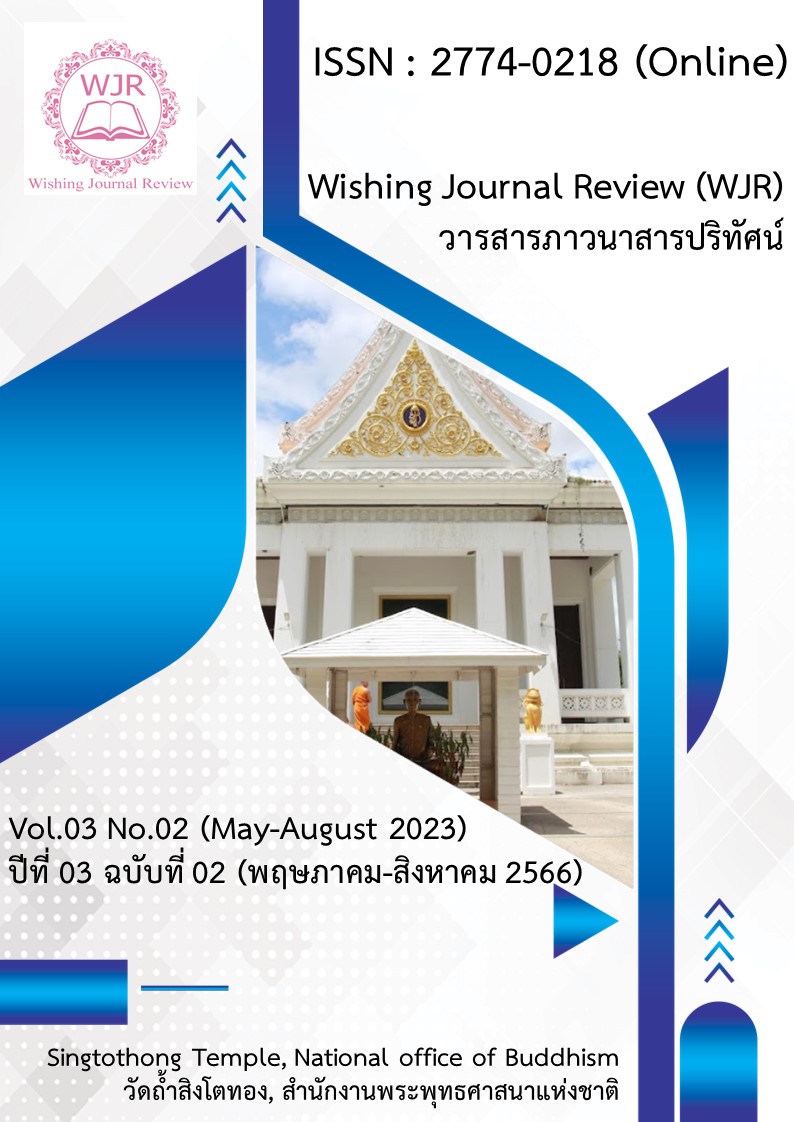Characteristics of School Administrators in the 21st Century
Keywords:
Characteristics, Administrators, the 21st CenturyAbstract
Abstract
Providing education in the 21st century, educational establishments must develop learners in both knowledge and competence. 21st century skills include learning and innovation skills, life and career skills. and skills against information, media and technology which executives must be aware of the changes Develop yourself, come up with new management strategies. Change the working style to focus on the relationship of workers inside the organization and outside the organization. Pay attention to the results-oriented organizational culture. Pay attention to the subject of proper teaching science. And must take a role in accelerating the change in teaching and learning management styles of teachers Adaptation of course content while developing new skills to teachers Encourage the use of technology to improve the quality of education. As well as adjusting the role of building a learning network both inside and outside the school to develop learners to have knowledge, abilities and skills that are equal to being accepted by
Other nations. And able to live happily (Sommai Amdonkloy, 2013, p.6) Modern skills are essential attributes of effective leadership. School administrators who are leaders are therefore essential to develop the necessary skills and it is important to the management of educational institutions and continuous self-management. To lead to effective management skills for school administrators in the 21st century include: analytical and creative thinking, problem solving, communication, teamwork. Technology and digital Results Based judgment and morality and ethics (Chaiyon Paophan, 2016)
References
กวี วงศ์พุฒ. (2535). ภาวะผู้นำ. กรุงเทพฯ : โรงพิมพ์องค์การรับส่งสินค้าและพัสดุภัณฑ์.
ดุษฎีรัตน์ โกสุมภ์ศิริ.(2560). “ภาวะผู้นำแบบดุลยภาพ - ภาวะผู้นำสำหรับศตวรรษที่ 21”. วารสารสมาคมนักวิจัย (22),3, 110-119.
ทองใบ สุดชารี. (2550). ภาวะผู้นำ : กลไกขับเคลื่อนองค์การแห่งการเรียนรู้. อุบลราชธานี : มหาวิทยาลัย ราชภัฏอุบลราชธานี.
พระครูปลัดธรรมจริยวัฒน์. (2558). ภาวะผู้นำ: หลักธรรมและกระบวนการเรียนรู้เพื่อสร้างสรรค์. ขอนแก่น: โรงพิมพ์คลังนานาวิทยา.
รังสรรค์ ประเสริฐศรี. (2544). ภาวะผู้นำ. กรุงเทพฯ : ธนชัชการพิมพ์.
วิโจน์ สารรัตนะ, รศ. ดร. (2557). ภาวะผู้นำ : ทฤษฎีและนานาทัศนะร่วมสมัยปัจจุบัน. กรุงเทพฯ ทิพยวิสุทธิ์.สุนทรีภรณ์ แก้วกนก. (2546). ปัจจัยที่มีผลต่อภาวะผู้นำของผู้บริหารโรงเรียนประถมศึกษา. อุบลราชธานี มหาวิทยาลัยราชภัฏอุบลราชธานี
ศิริวรรณ เสรีรัตน์ และคณะ. (2550). การจัดการและพฤติกรรมองค์การ. กรุงเทพฯ : ธีระฟิล์มและไซเท็กซ์.
ศักดิ์ไทย สุรกิจบวร. (2549). สมรรถนะสำคัญของผู้บริหารมืออาชีพ. วารสารมหาวิทยาลัยราชภัฏสกลนคร : 6 (12) : กรกฎาคม - ธันวาคม2557. 171.



